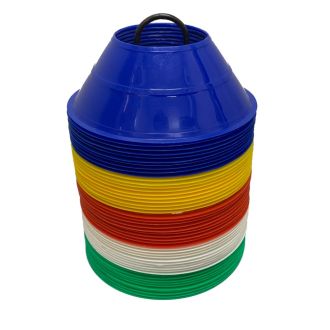How To Encourage Playing Fair in a Young Football Team
When you’re teaching kids football, you have a responsibility as their coach to install in them a good sportsman’s attitude and a sense of playing fair. However, when a difficult situation arises it can be hard to know how to deal with it, because the last thing you want is to upset your team! Here are some common problems you might face when coaching kids football, and how to overcome them:
If A Player Won’t Pass
Sometimes when one or more players in your team are faster or more advanced than others, they’ll be reluctant to pass – but it’s important for their confidence and development that other players get a chance. This is a difficult situation as you don’t want to discourage talented kids from trying their best, or make them feel like they have done something very wrong.
The solution is to give the more advanced kids a “challenge” rather than a punishment; talk to them separately at the start of the game and say something like they need to pass ten times during the whole game; kids will likely see this as more encouraging. You can also nominate these kids to help you develop the team; if they get hands on with helping you build everyone’s skills, they will feel more dedicated to seeing the whole team succeed, rather than themselves alone.
What To Do About Disruptive Players
If one of your players is deliberately misbehaving and ruining the experience for other kids in the team, it can be a delicate matter to deal with – after all, their parents are paying you to teach, so it can be difficult to justify always leaving that player on the bench.
The better solution is to encourage teamwork and a good attitude between all your players; after all, a good teammate should try to never let the rest of his team down.
Start by taking the whole team aside for a teamwork and conduct session after training; don’t single anyone out, just ask a series of questions that show what the behaviour of a good sportsman should be like. You can also incentivise them with a meal out for good behaviour during training.
If this doesn’t stop the disruptive kid in your team, you may need to talk to their parents and the child together, and enforce the idea that good behaviour is imperative if they are to continue at the club.
How To Manage Beginners
All coaches and all teams want to win, even though it’s the taking part that counts, winning is a good bonus! That’s why many coaches wonder whether they should have a beginner play in matches, as if the player struggles, they may bring down the momentum of the team.
However, let’s look at this from another perspective; when players are young they are developing their confidence in playing, so it’s not a good idea to keep them benched and not included.
Instead, focus on teaching your team about how they should support the new player as he or she is part of the team, and how they should judge a new player of their effort and attitude to the game rather than their current skills.
Besides, the more experience they have the more quickly they will develop into a stronger player!
As a parent or a coach it is also important for you to encourage children when mistakes are made and praise them when good things are done during a game or training. Remember football should be fun for children and at a young age it is not all about winning, it’s about development.


